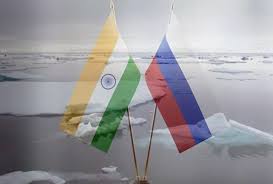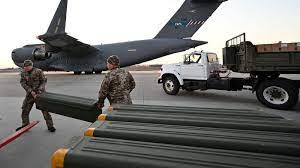The Arctic region is rapidly emerging as a critical area of strategic and economic interest, with its rich natural resources and potential maritime routes drawing the attention of global powers. Russia and India have established a robust partnership in this region, particularly around Vladivostok, which is poised to benefit both nations significantly. However, with China’s increasing presence and collaboration with Russia, India must advance its Arctic strategy to maintain and enhance its position.
Historical Ties and Strategic Importance
India and Russia have enjoyed a strong relationship for decades, marked by extensive diplomatic, defence, and economic ties. The Arctic collaboration represents a new frontier in this partnership, driven by mutual interests in the region’s vast resources and strategic significance.
For Russia, the Arctic is a treasure trove of untapped resources, including oil, gas, and minerals. It also offers the potential for a major shipping route via the Northern Sea Route (NSR). India, with its growing energy needs and geopolitical aspirations, views the Arctic as crucial for securing energy supplies and expanding its global influence. Vladivostok, Russia’s key Pacific port, plays a central role as the gateway to both the Arctic and the Russian Far East.
Economic and Energy Cooperation
Energy cooperation is a cornerstone of the India-Russia Arctic partnership. The region’s hydrocarbon reserves present significant opportunities for joint ventures. Indian energy companies are actively exploring collaborations with Russian counterparts to access these resources, ensuring India’s energy security while supporting Russian exploration efforts.
The Eastern Economic Forum (EEF) in Vladivostok has been a pivotal platform for advancing this cooperation. Recent agreements during the EEF have focused on India’s participation in Arctic energy projects and the development of the NSR. This shipping route, which shortens travel time between Europe and Asia, holds significant promise for India by potentially reducing shipping costs for its exports to Europe.
Technological and Scientific Collaboration
In addition to energy cooperation, both nations are working together on scientific research in the Arctic. India’s experience in polar research, stemming from its Antarctic missions, complements Russia’s extensive Arctic exploration. This collaboration aims to address challenges related to climate change, environmental conservation, and sustainable resource extraction. These efforts contribute not only to global scientific knowledge but also to the strengthening of the bilateral relationship.
Geopolitical Context and China’s Role
As the Arctic gains prominence, other global powers—particularly China—are also increasing their involvement. China’s strategic interests in the Arctic include resource extraction and establishing a strong foothold in the region. China’s growing collaboration with Russia has been marked by significant investments and joint initiatives, positioning it as a key player in the Arctic arena.
For India, this rising competition underscores the need to strengthen its Arctic strategy. China’s partnership with Russia highlights the urgency for India to enhance its engagement in the region, ensuring it can secure its interests and maintain a competitive edge. By advancing its Arctic initiatives, India can remain a significant player in the evolving geopolitical landscape.
Challenges and Strategic Directions
While the India-Russia Arctic collaboration offers immense potential, several challenges must be addressed. Harsh climatic conditions, the need for advanced technology, and the complexities of international Arctic governance require careful navigation. Additionally, geopolitical tensions between Russia and Western countries could impact the scope of collaboration.
To counterbalance China’s growing influence and assert its position, India should pursue a multifaceted strategy. This includes deepening economic ties with Russia, expanding technological cooperation, and actively participating in Arctic governance. Strengthening partnerships with other Arctic and non-Arctic nations and leveraging its expertise in polar research can also enhance India’s strategic presence in the region.
Conclusion
The partnership between Russia and India in the Arctic holds substantial promise for both nations, offering economic, technological, and geopolitical benefits. As China solidifies its role in the region, India must advance its Arctic strategy to secure its interests and enhance its global position. The collaboration centred around Vladivostok exemplifies the strength of the India-Russia relationship and serves as a crucial component of India’s broader Arctic engagement. By navigating the challenges and seizing the opportunities, India can play a pivotal role in shaping the future of the Arctic.

This article was written by Nishchhal a Data Analyst





